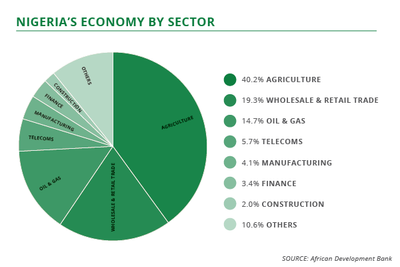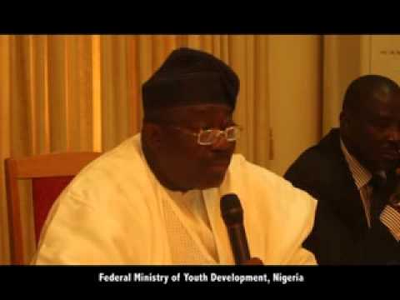How Nigeria Is Investing In People – More than half of Nigeria’s 177 million citizens are under the age of 25. Africa’s most populous country is making essential investments in education, healthcare and social services to ensure that Nigeria’s youth have the skills, resources and opportunities necessary to accelerate Nigeria’s ascent as a global economic power.
Nigeria’s Transformation Agenda, a comprehensive government reform initiative, is designed to make smart investments in Nigeria’s population. The goal is not only to create opportunities for business, but also to ensure that resources are earmarked to improve the welfare of low and middle-income households and rural communities. This is especially important given Nigeria’s diverse population made up of about 200 ethnic groups, with 500 indigenous languages and two major religions – Islam and Christianity.
Investing in Health
The government’s leading health care priority has been to support maternal and child health. Improvements in health care delivery systems and infrastructure have lowered the country’s under-5 mortality rate by 40% in just four years. Likewise, the maternal mortality rate has decreased 36% during the same period. Nigeria’s national immunization program has been expanded and today reaches more than 80% of the population.
Much international attention has been focused on Nigeria’s recent effort to control Ebola in the country. After foreign travelers introduced the virus into Lagos – Nigeria’s largest city – the government quickly put in place monitoring and treatment systems in collaboration with the World Health Organization and the U.S. Centers for Disease Control. As a result, Nigeria was able to stop the spread of the disease and is now certified by the WHO as Ebola-free.
Nigeria has succeeded at controlling other communicable diseases as well. Rates of malaria, tuberculosis and HIV/AIDS have all declined in recent years. Guinea worm, a disease that once afflicted 800,000 Nigerians every year, has been eliminated. The Type-3 Wild Polio virus has been eradicated, with no new cases reported in more than a year. Improvements in overall healthcare have raised Nigeria’s life expectancy from 47 to 52 years in just the past five years.
Investing in Education
Nigeria’s national education budget tripled between 2007 and 2013. Basic school enrollment has increased by more than 10 million students in the last five years alone. Twelve new federal universities have been established, and investments and renovations have been made in more than 350 technical and vocational institutions.
Mega-universities, capable of educating more than 120,000 students each, are being established in six regions to accommodate the country’s growing university-age population. The result of these combined investments is the potential of a better educated, higher skilled workforce for tomorrow’s Nigeria’s, one able to compete globally and drive the country’s economic growth for decades to come.
Investing in Entrepreneurs
Nigeria is also cultivating young entrepreneurs to help diversify and invigorate its local business communities. Young Nigerians are creating their own businesses in technology, professional services, agribusiness, creative industries and other sectors. Government programs like the Youth Enterprise with Innovation in Nigeria initiative, also known as YouWIN, receives more than 60,000 applications each year for its 6,000 training and 1,200 mentorship opportunities.
Courtesy:www.nigerianext.com





